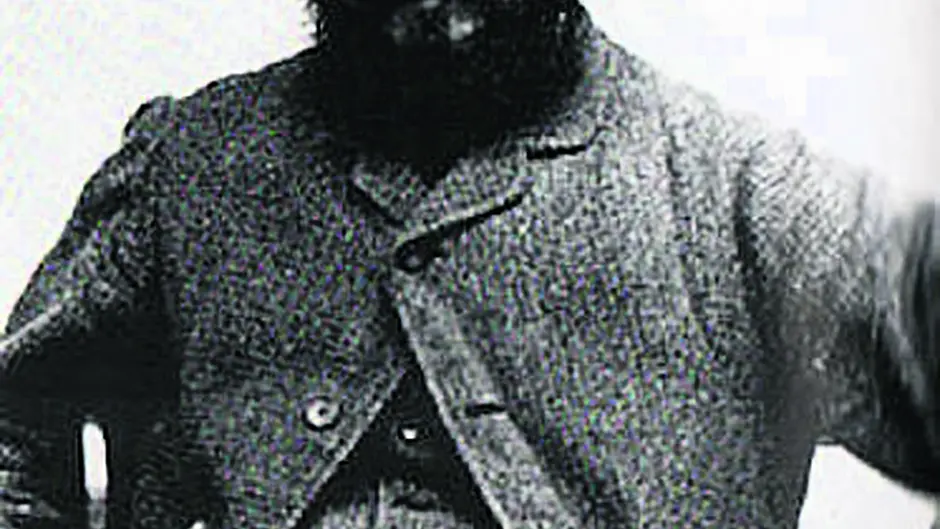Deputy Fenian leader Ricard O'Sullivan Burke, from Kinneigh, claimed that a deliberate attempt was made to poison him while he lay in Chatham Prison in Kent, 150 years ago this week, writes Robert Hume
BY ROBERT HUME
RICARD O’Sullivan Burke did not have an easy life in prison. Incarcerated in a cell eight feet in length and four in width, he would have been forced to work in the adjoining dockyard.
For a long period he was very ill with a chest complaint and intestinal worms – the result of poor quality food.
Chatham Prison’s assistant surgeon, Dr Steele, visited Burke and prescribed a compound. After three doses he suffered a violent stomach ache and convulsions, and started to vomit.
To humour him, Steele gave him egg white as an antidote. But Burke got worse, was unable to eat, and refused further medicine. No sympathy was forthcoming from the prison authorities. One doctor maintained that Burke was feigning insanity.
By December 1869 he was so ill that his death was hourly expected and he received the last rites from Father O’Sullivan, the Catholc chaplain.
He told a fellow prisoner: ‘I would like to lie down in old Kinneigh by the side of my brother Dan.’
Ricard O’Sullivan Burke was born in Clouneyreague, Kinneigh, in 1838.
When they were evicted from their home, the family moved to Dunmanway, where he attended the Model School and showed an aptitude for sketching and an interest in Gaelic literature.
At 15, he joined the 87th or South Cork Light Infantry Militia, and was stationed in Bandon, Kinsale and Limerick. He deserted after an officer hit him for incorrectly addressing an envelope.
In order to avoid arrest, he sought refuge in USA, where a sea captain was so impressed with a portrait that he had asked Ricard to paint, that he offered him work as a deck hand on his ship.
Burke’s voyages took him all over the world – to Honduras, North and South America, the Far East, the South Pacific, even the Arctic.
Returning to New York, he fought for the Unionists in the American Civil War (1861-65), took part in many key battles, surviving ‘without a scratch’.
In 1867 he joined the Fenian Brotherhood and was entrusted by its leader Thomas J Kelly to co-ordinate a series of uprisings. A raid on Chester Castle failed, as did attempts to raise troops at Waterford and Tipperary.
Burke helped plan Kelly and Timothy Deasy’s escape from a police van in Manchester on September 18th and during the incident Sergeant Charles Brett was killed.
Soon afterwards he was arrested. As he awaited trial, two attempts to rescue him went amiss.
At the Old Bailey on 30 April 1868 Burke was found guilty of treason felony, and was sentenced to 14 years imprisonment.
On 18 May he was taken to Chatham Prison, Kent. There his health declined so much that he was transferred first to Woking Invalid Prison, Surrey, then to Broadmoor Lunatic Asylum, before his brother took him to Ireland to convalesce at his house in Coachford, Co Cork.
Returning to USA in 1873, Burke served as a clerk in the War Department, and arranged Charles Stewart Parnell’s American tour.
In Washington in 1881 he married 20 year-old Nora Sheehy from Indiana, who bore him two children, Nellie and Ricard.
A series of engineering projects occupied his later years. He helped construct the Laredo to Mexico City railway, supervised the sewers in Chicago, and helped fellow Irishman John Philip Holland build the first submarine.
Ricard O’Sullivan Burke died following a stroke in 1922, aged 84. He was buried in Chicago – some 3,500 miles from his native Kinneigh.
But in August 2009, he was remembered in his native West Cork, when MEP Brian Crowley unveiled a monument to the Fenian, at Coppeen.
For more information, see O’Sullivan Burke, Fenian by Mary C Lynch and Seamus O’Donoghue (1999)







